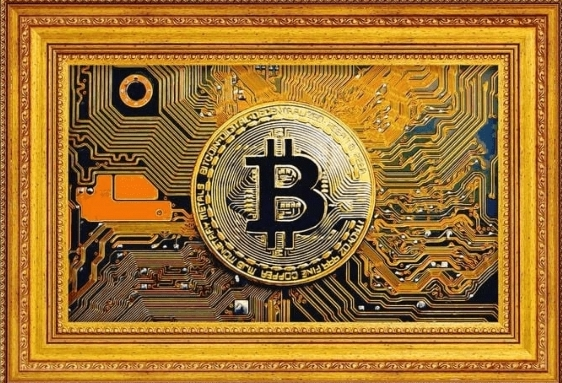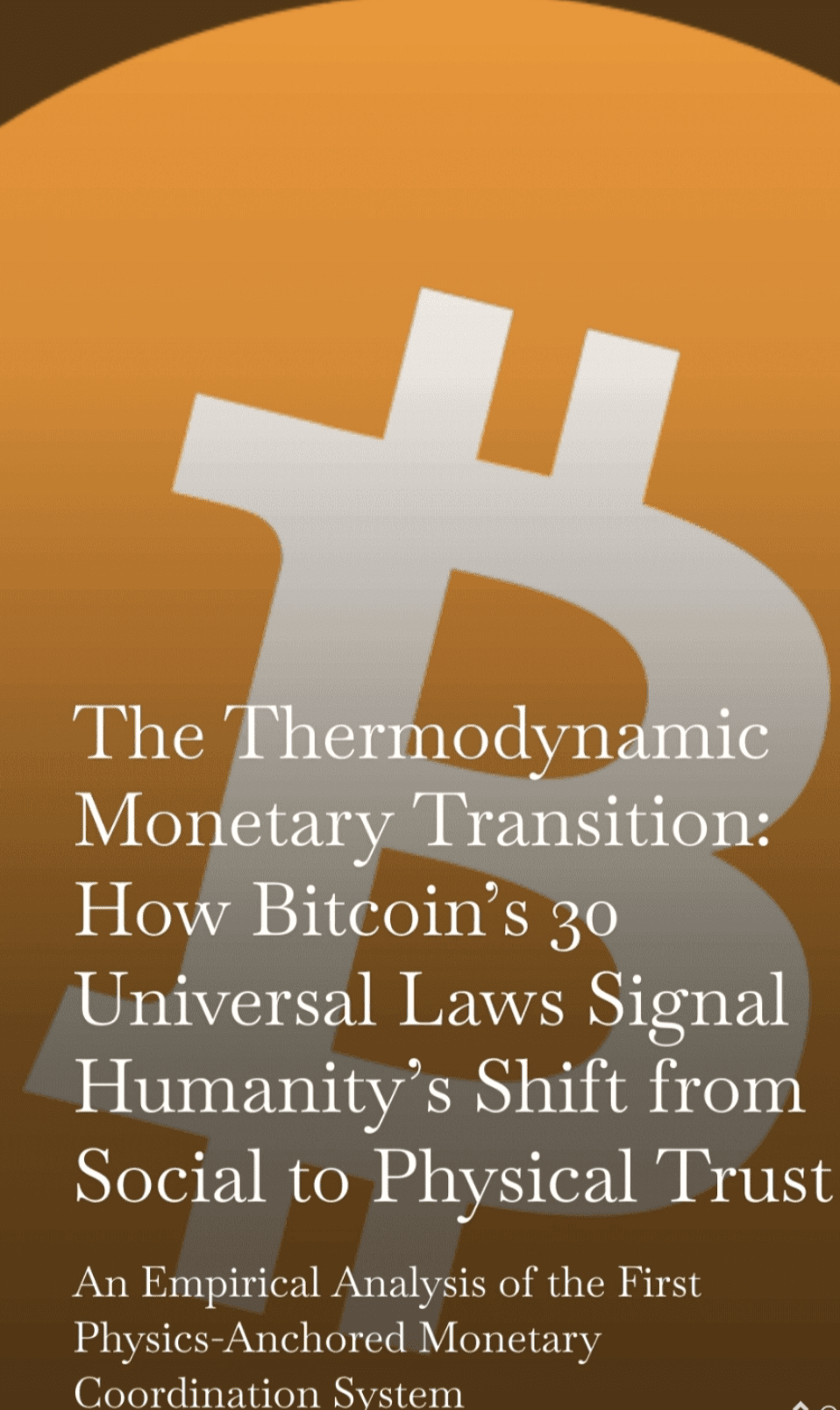After 16 years and $1.83 trillion, I finally understood what bitcoin is.
Not digital gold. Not a payment system. Not even money.
Bitcoin is the first human institution that derives its legitimacy from physics instead of politics.
This is what it means:
Your bank account exists because the government authorizes it. It can freeze it. Print more. Change the rules.
Bitcoin exists because thermodynamics allows it. Each block costs $281,700 in electricity. You cannot print energy. You cannot vote to change physics.
Rewriting one day of Bitcoin's history costs $40 million in energy.
Rewriting one day of banking history costs one phone call.
That's why it won't stop.
Not because of the price. Not because of the believers. But because of the math.
Metcalfe's law predicts the price of Bitcoin with 90% accuracy over 15 years. The same law that governs the spread of epidemics and the sequence of earthquakes.
Game theory predicts the absence of successful attacks over 16 years. The same math that keeps nuclear weapons from being used and traffic flowing.
Thermodynamics predicts the reasons for the rising cost of attack compared to defense. The same physics that makes gold counterfeiting impossible.
Three scientific laws. 16 years of data. $1.83 trillion in validations.
I asked every other currency in history: "Do you trust us?"
I asked Bitcoin: "Can you do the calculations?"
For 5000 years, money meant trust in kings, priests, or central bank governors.
For 16 years, money meant validating physics.
You are not obligated to believe in Bitcoin.
You are not obligated to believe in the internet either.
The TCP/IP protocol reached its sixteenth anniversary in 2005. People still think it's just a passing fad.
Today you read this because of it. The pattern is simple: infrastructure that eliminates the need for trust always wins. Always.
Not today. Not this year.
But in the end.
Because physics is patient.
And physics does not negotiate.



